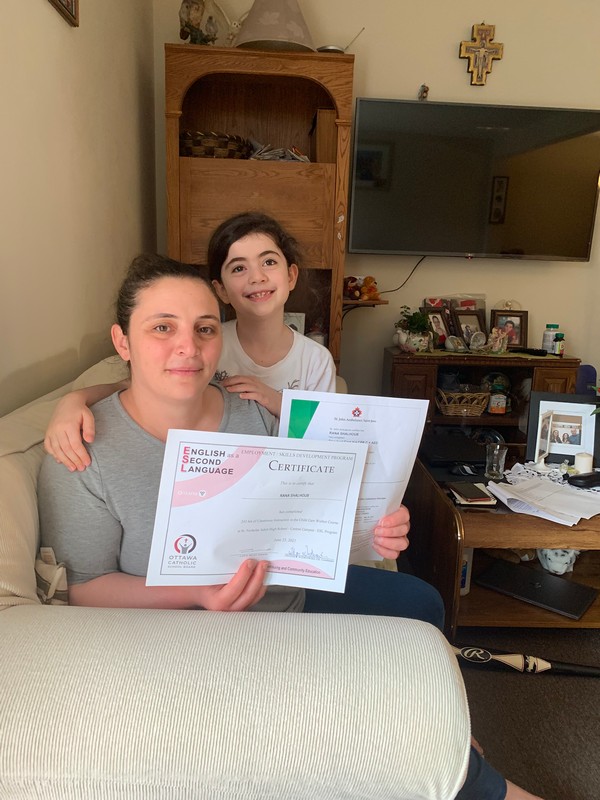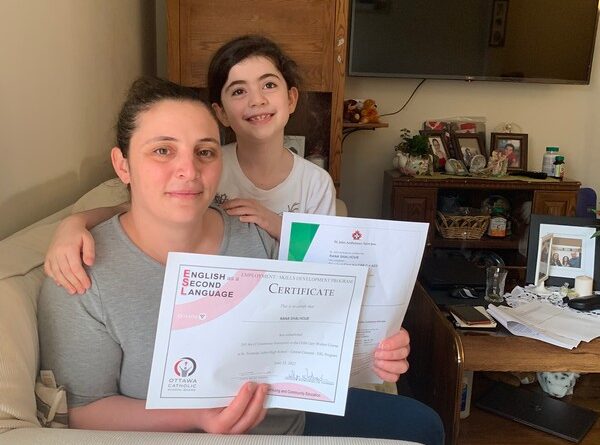OMRA has been helping newcomers to Ottawa avoid homelessness since 2001
Carol Buckley
A recent evaluation of OMRA found that this small local charity is helping newcomers maintain stable housing in the face of high and rising rates. The evaluation was carried out by uOttawa professors Tim Roebuck and Maryann Aubry, along with researchers S. Manoni-Millar and K. Quds Akbar.
InÊ2001, a refugee sponsorship group at Ottawa Mennonite Church struggled to find housing for a large family they had sponsored, leading to the establishment of OMRA (originally known as the Ottawa Mennonite Refugee Assistance), an all-volunteer charity that provides portable rent subsidies to selected newcomers to help them cover their rent.
While rising rental costs are causing hardship for scores of families and individuals across Ottawa, they are of special concern for refugees who rely on government shelter allowances that have not been adjusted since 2018. The monthly shelter allowance for a family of four is only $756. This is inadequate to cover the average rent for a 2-bedroom apartment in Ottawa, which according to CMHC, was $1,700 in 2023, looking at all apartments; or according to Rentals.ca, $2,400, looking only at vacant apartments.
In 2017, OMRA paid $24,000 in rental subsidies. By 2023, that number grew to $126,000 with OMRA supporting about seven times more families during the year. The average rental subsidy was $420/month in 2023. On average, OMRA provides subsidies for just under two years, with a range from two months to five years.
Several clients interviewed for the evaluation said that they would not have been able to study in their profession without OMRA subsidies. They would have had to get an immediate job and forgo longer-term, more stable goals.
On a personal level, OMRA clients reported improvements in their daily life, such as increased connectedness and reduced loneliness. Newcomers are often isolated by lack of money, contacts, and knowledge of English and French. OMRA volunteers provided much-needed contact. “They check on you. You feel like you’re not alone,” said one OMRA client.
OMRA has several Sandy Hill connections. A former OMRA client consisting of a mother and her young daughter now make Sandy Hill their home. After improving her English, the mother enrolled in studies to work in medical administration and is now employed. In addition, many Sandy Hill residents buy OMRA grocery cards each month. OMRA thanks this community for its support.
OMRA raises funds through grocery card sales. Purchasers buy cards with $50 or $100 values, and the stores pay OMRA 4 to 5% of the value of the cards. Loblaws/No Frills, Metro/Food Basics, and Farm Boy participate in OMRA’s program.
OMRA is proud to work closely with local partners. Nine faith-based and community groups come together to buy the grocery cards. OMRA refers clients to both Helping with Furniture and Matthew House to help set up newcomers’ households. Local refugee sponsorship groups refer clients to OMRA as do the Catholic Centre for Immigrants and the Ottawa Community Immigrant Services Organization. Some thirty volunteers help OMRA families with tutoring and moving tasks.
The evaluation provided a number of recommendations for OMRA, including increasing the subsidy amounts, increasing the number of clients, and exploring the possibility of linking to a larger, more stable organization. Consequently, OMRA is currently exploring broadening its client base as a pilot project called Rent Assist Allies in collaboration with Action logement, a housing loss-prevention group.
If you would like to know more about OMRA, please visit https://omraottawa.org/. If you would like to purchase grocery cards, please contact omrainquiries@gmail.com. You can also donate to OMRA at Canada Helps.

